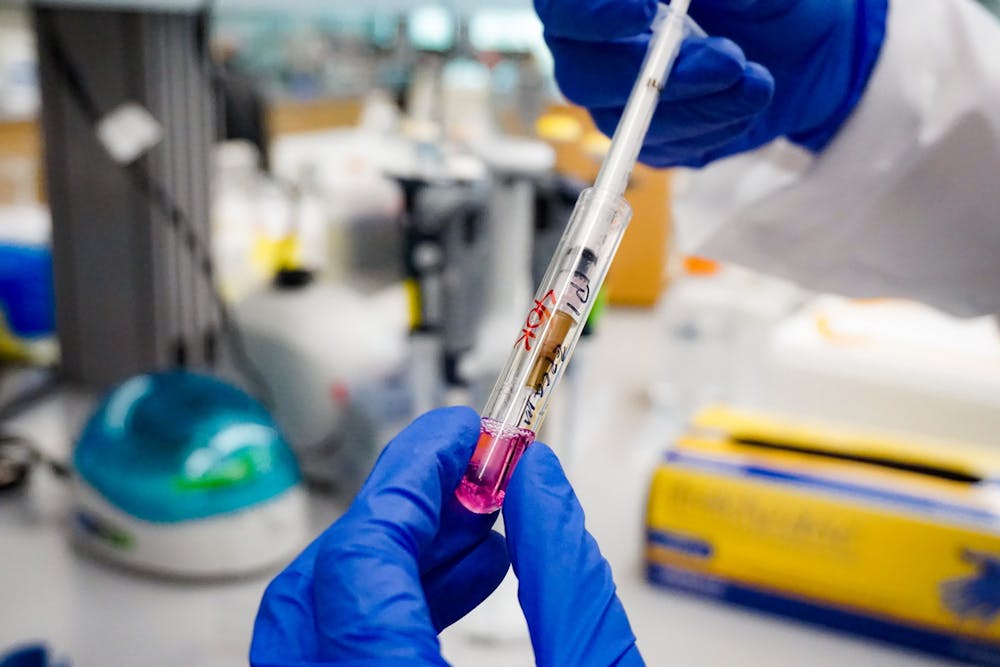Penn Medicine is conducting the first study in the United States to use CRISPR/Cas9 gene therapy to treat cancer in humans. Early results indicate this method is safe and effective, Penn Medicine News reported Wednesday.
In the study, researchers used the CRISPR/Cas9 gene-editing system to remove specific genes from patients' T cells, a type of immune cell. They then inserted other genes to allow the T cells to target the patients' tumors when returned to the body. The trial, which is the first human CRISPR/Cas9 trial in the United States, involves three participants so far — two with multiple myeloma and one with sarcoma. In all three patients, the edited T cells were infused back into the body and successfully bound to targeted tumors without serious side effects related to the study’s approach.
While the three patients have not yet improved as a result of the treatment, the researchers said this early trial is focused on safety rather than efficacy.
“This trial is primarily concerned with three questions: can we edit T cells in this specific way? Are the resulting T cells functional? And are these cells safe to infuse into a patient? This early data suggests that the answer to all three questions may be yes,” principal investigator and Penn Med Hematologic Malignancies Section Chief Edward Stadtmauer told Penn Medicine News.
The trial was conducted at Penn Med's Abramson Cancer Center in conjunction with Parker Institute for Cancer Immunotherapy and Tmunity Therapeutics. Along with Stadtmauer, Immunotherapy professor Carl June is serving as senior author.
“Our use of CRISPR editing is geared toward improving the effectiveness of gene therapies, not editing a patient’s DNA,” June told Penn Medicine News. “We leaned heavily on our experience as pioneers of the earliest trials for modified T-cell therapies and gene therapies, as well as the strength of Penn’s research infrastructure, to make this study a reality.”
CRISPR, a recently-developed technique for gene editing, uses a special enzyme complex derived from bacteria that can identify specific genetic sequences and replace them with new sequences. The potential ability of this technique to rewrite the human genome has caused many ethical controversies within the scientific community. Since 2015, the United States has prohibited the use of CRISPR/Cas9 to edit human germlines and create "designer babies" with specifically chosen genes. In November 2018, a scientist in China said he used the technique to modify the genes of two human embryos to make them immune to HIV. Unlike the Chinese study, the Penn Med project involves modifying non-reproductive cells, reducing ethical concerns.
Researchers told Penn Medicine News that they hope to expand the study to include a longer clinical follow up to better understand this treatment method. Stadtmauer will present the existing results at the 61st American Society of Hematology Annual Meeting and Exposition on Dec. 7.
RElATED:
Penn professors call for global moratorium on controversial gene editing research
Penn Med researchers use CRISPR technology to treat lung disease in mice









